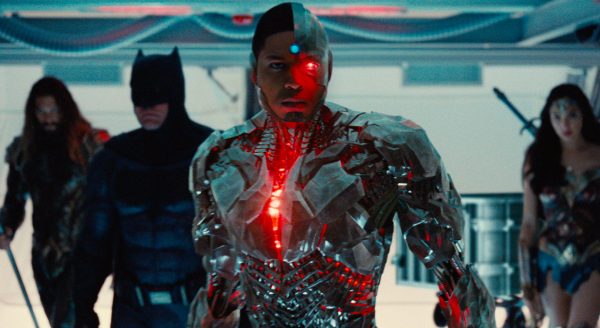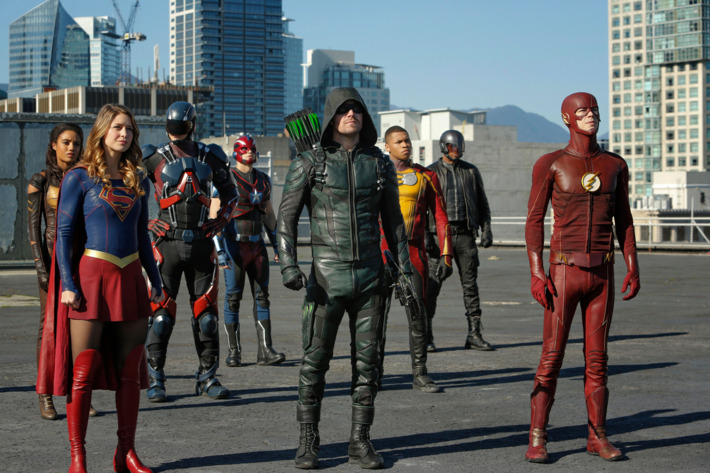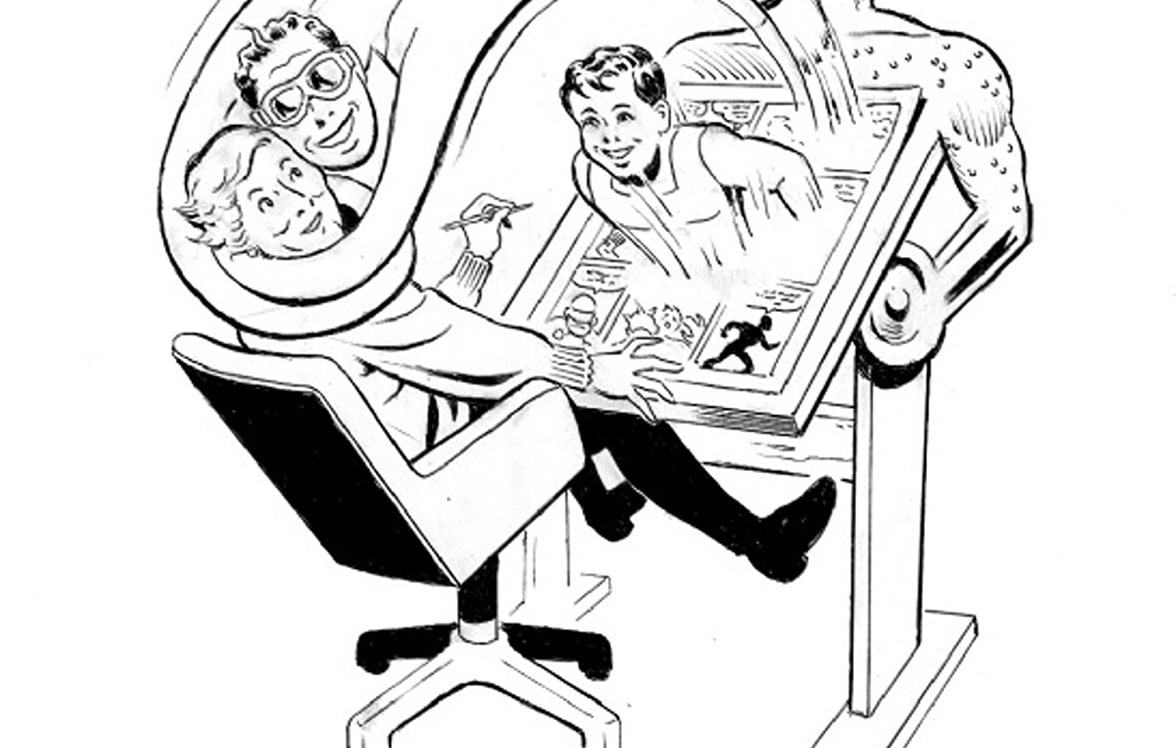When you’ve been doing this as long as I have, you have to take the long view. And watching narratives emerge, evolve and take their place as history is part of the fascination that keeps me coming to my keyboard to tell you all about it.
So it is that Abraham Riesman’s profile of Geoff Johns, Diane Nelson and WB/DC/DC Entertainment’s movie efforts for the last 10 years or so, is the emergence of the final , polished narrative of What Happened: from Dark Knight to BvS to Greg Berlanti to Wonder Woman. And along the way the triumphant Nelson/Johns duo start the whole new narrative namely, “Oh, we don’t need to try to do what Marvel is doing with that whole cinematic universe thing.”
None of that seems to worry Nelson, and that’s partly because DC and Warner have adopted a new strategy: Let’s rethink that whole universe thing. They’re not giving up on the idea of continuity, but they want to deemphasize the idea that all of these flicks are occupying the same space. “Our intention, certainly, moving forward is using the continuity to help make sure nothing is diverging in a way that doesn’t make sense, but there’s no insistence upon an overall story line or interconnectivity in that universe,” says Nelson, drawing nods from the top brass around her.
Like I’ve said many a time, there is only one Kevin Feige and trying to imitate him is not a winning strategy. So this new, “Let’s make more movies like Wonder Woman!” idea is an easy one to get behind. The story also firmly plants Nelson/Johns as uneasy sideline prophets whose dire warnings were ignored during the dark Man of Steel/Green Lantern/Batman V Superman years. It even quotes Martin Campbell, the director of Green Lantern, AKA the most unlikely superhero auteur of all times.
Nelson and Johns faced further cinematic frustration: During the development of Man of Steel, they were marginalized creatively. It was a decidedly gritty take on Superman, and its final battle featured him remorselessly destroying skyscrapers and ultimately executing his foe, General Zod. This didn’t sit right with Johns. “Geoff Johns and Diane were reading scripts, and Geoff Johns, to his credit, was concerned that there was not enough lightness or humor, given who the character is,” recalls one person with knowledge of the making of Man of Steel. “Geoff definitely raised that point, but that current administration didn’t care that much about what Geoff Johns thought.” The movie came out in June 2013 with the DC Entertainment branding, but largely without its fingerprints.
By contrast, the very successful TV arm of the DCEU, is where Johns and Greg Berlanti have been arm in arm. And so, one of my favorite sayings is proven once again: Don’t distance yourself from success.
I’m not going to do a paragraph by paragraph annotation of the piece, but it very much names the winners and losers and sets everyone off on a hopeful note for Aquaman and the “Arrival of the TV people” as The Ankler is always calling the still not finalized ATT take over of WB.
Collider is among the outlets hailing the end of the Feige-style DCEU plan:
This is an incredibly smart move. Warner Bros. got off on the wrong foot thinking they could fast forward to the same success that Marvel had with its Marvel Cinematic Universe, but copying what’s already working isn’t the way forward—putting your own twist on that is. Here, Warner Bros. can do what Marvel cannot: offer filmmakers a significant degree of creative freedom to make their films really stand out as their own, while keeping some loose connectivity from film to film.
I’m still a little wary of the whole idea of the “Designer DC Cinematic Universe” with unrelated takes on familiar characters. Until a little while ago I would have been thrilled to see a Darren Aronofsky styled DC picture, but he seems to have thrown out the baby with the bloodbath water with Mother. But yeah, a good idea in principle until fanboys become enraged.
So there you have it. After years of strife, misunderstanding and miscues, the right people are in charge at DC for the moment and Aquaman’s waters are as placid as Jason Momoa’s thought process. Just gotta get through this Justice League thing and all will be well…for a little while.










Interesting how Johns is taking all the credit after the successes but is denying his involvement in the failures. He was a producer on Green Lanterns and his best friend wrote MoS, but he was powerless for both, right?
At least DC isn’t the company that ferociously protects sexual predators…oh wait…
It’s hard to take the “they’re making our superheroes too dark” argument seriously when it’s coming from the guy who decided that what the Flash was really missing was a dead mom, but I’ll take what I can get, and it sounds like Wonder Woman was a concerted step towards course correction rather than a one-off. (Still didn’t need the “What’s Batman up to?” framing device.)
DC always was better at scrapping its whole universe and starting over.
This page gives you a lot of information. Thank you!
At the very least, this move frees them up to have a Batman in every TV and movie series.
To heck with the fanboys (I’m one)! As nice as the promise of a serialized connected universe of movies is, I always loved the independent DC movies. So what if Batman is played by a different actor every other movie? Or why do we need to know where Superman is during the events of “Aquaman?” Comic book readers have lived with this for years as characters have their own arcs and only the occasional cross over. Ideally, I’d like to see all the movies in the same space, but without some overarching plot line. I think we can all agree Civil War would have been better as Captain America 3, and BvS would have been better as Batman 1 or Man of Steel 2.
Comments are closed.